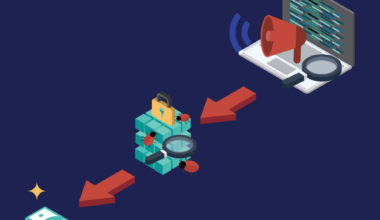As quantum computing rapidly advances, its potential to revolutionize cybersecurity is both promising and alarming. Discover how this groundbreaking technology will shape the cybersecurity landscape in 2024.
The Rise of Quantum Computing: A Double-Edged Sword
Quantum computing is on the verge of becoming a reality, with significant advancements expected by 2024. This technology leverages the principles of quantum mechanics to process information at unprecedented speeds, far surpassing the capabilities of classical computers. However, this leap forward brings both opportunities and challenges.
On one hand, quantum computing holds the promise of solving complex problems that are currently beyond our reach, such as optimizing large-scale systems and advancing artificial intelligence. On the other hand, it poses serious risks to the current cybersecurity infrastructure, as many encryption methods that protect our data today could be rendered obsolete.
Quantum Threats: Breaking Modern Cryptography
One of the most significant threats posed by quantum computing is its potential to break modern cryptographic algorithms. Classical cryptographic techniques, such as RSA and ECC, rely on the computational difficulty of certain mathematical problems like factoring large numbers or solving discrete logarithms. Quantum computers, however, can efficiently solve these problems using algorithms such as Shor’s algorithm.
This means that encrypted data, which was previously considered secure, could be decrypted in a matter of seconds with a powerful enough quantum computer. This vulnerability threatens not only personal privacy but also the security of financial systems, government communications, and other critical infrastructures.
Quantum-Resistant Algorithms: The New Frontier
In response to the looming quantum threat, researchers are developing quantum-resistant algorithms, also known as post-quantum cryptography. These algorithms are designed to be secure against both classical and quantum attacks, ensuring that data remains protected even in a quantum future.
Several promising candidates for quantum-resistant algorithms are being evaluated, including lattice-based cryptography, hash-based cryptography, and multivariate polynomial cryptography. The National Institute of Standards and Technology (NIST) is actively working on standardizing these algorithms, with the goal of having quantum-resistant standards in place by 2024.
Adapting Cybersecurity Strategies for the Quantum Age
Organizations must begin to adapt their cybersecurity strategies to prepare for the quantum age. This involves not only adopting quantum-resistant algorithms but also re-evaluating security protocols and infrastructure to ensure they can withstand quantum attacks.
One critical step is to conduct a thorough assessment of current encryption methods and identify which systems are most vulnerable to quantum threats. Additionally, organizations should invest in quantum key distribution (QKD) technologies, which use quantum mechanics to securely distribute encryption keys, offering a level of security that is theoretically unbreakable.
The Global Race for Quantum Supremacy
The race for quantum supremacy is a global competition, with major players including the United States, China, and the European Union, among others. Governments and private companies are investing heavily in quantum research and development, recognizing the strategic advantages that quantum computing can provide.
Achieving quantum supremacy, the point at which a quantum computer can perform a task that is impossible for classical computers, is a key milestone. However, it also marks the beginning of a new era of cybersecurity challenges. As we approach 2024, the need for international cooperation and standards becomes increasingly important to ensure that the benefits of quantum computing are realized while mitigating its risks.
Also check out this blog – Revolutionizing Security: Google’s Quantum Resilient FIDO2 Key






